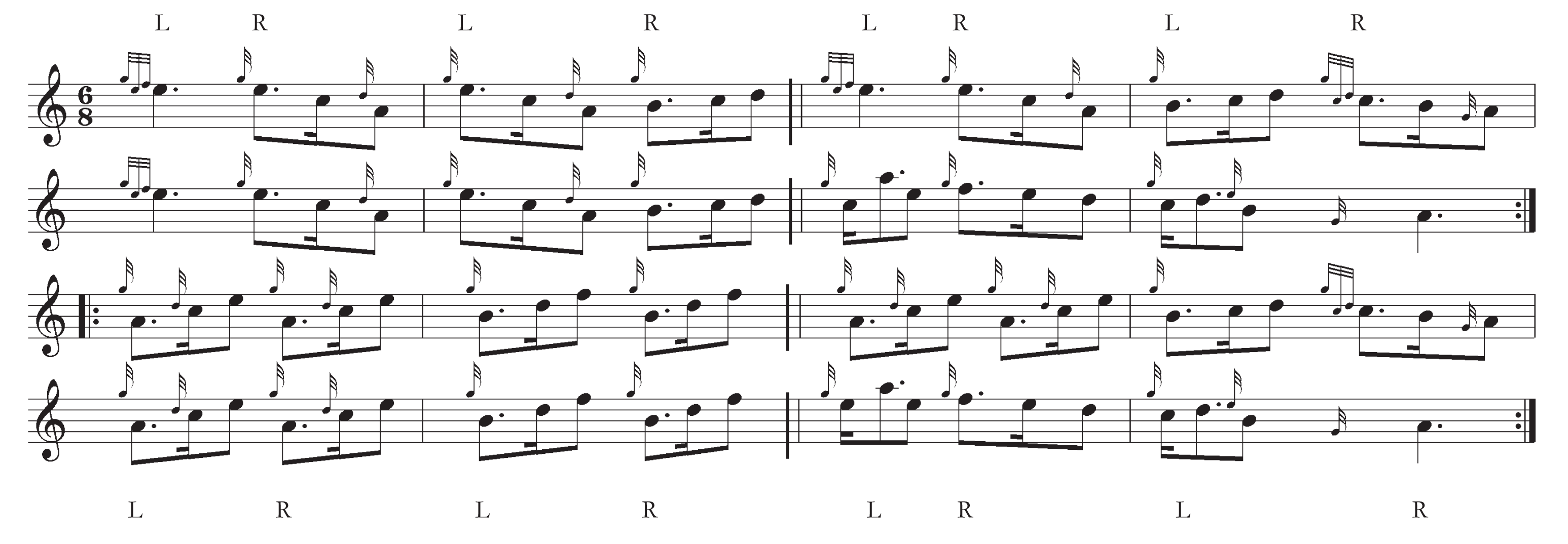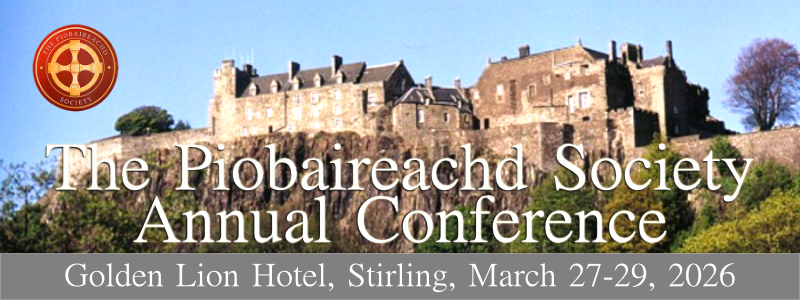
There aren’t many contests for 6/8 marches these days but the recent posting of the Skye Gathering entry form reminded me of one. And I remember last year at the Donald MacLeod contest they held one which I think featured some of the great composers’ works.
Skye’s dedication to the art stems from the enthusiasm of their former Chairman Col. Jock MacDonald, a particular devotee of the 6/8.
In the bands we don’t often hear them parading with these marches these days; it’s all 4/4s and those interminable ‘hornmarches’. Yet at one time the 6/8 was a staple of the gala day and other fundraisers, the expressive projection of these marches a thing of pride. Now bands seem to hammer into them as if they are some inferior form of music to be got through with as little pause for thought as possible.
And this hammering them out is the problem – a problem that has leached into the solo world too. Where are the great 6/8 players these days? I can remember Donald MacLeod playing them in his beautiful, relaxed style, a style he passed on to his students Angus J MacLellan and Iain Murdo Morrison. Not for them a hammer up the park, more a poised pointing, lilting phrase following lilting phrase. (Iain is pictured above playing at Oban for judges Ronnie MacCallum, Dr Colin Caird and John D Burgess.)
So, to try to arrest the slide of the 6/8 into the ‘dying art’ category I offer the following:
Many of our solo pipers and bands, those at the top of the tree not excluded, fail to observe the basics when playing these swinging pieces. In particular the required ‘question and answer’ phrasing is ignored completely in some cases.
6/8s must be played with a ‘strong, weak, weak’ rhythm, two beats to the bar, the first pointed more than the second. Once this is established we then need to pick out the two-bar phrases and mark them with a minute pause before launching into the next. Here is the well-known 6/8 the Atholl Highlanders as marked out accordingly in Bagpipe Tutor Book 2 :
The left and right beats are shown clearly. We give a little more to the left than we do to the right, and we have an ever-so-slight pause at the end of the phrases (the first and third in each line marked with the vertical line).
Follow this pattern in all your 6/8s (applies to drummers too) and you will not go wrong. And when playing solo, under no circumstances follow the example of the thump, thump of the bass drummers as they batter out the tempo for massed bands – they are just trying to keep everyone together, not trying to appeal to the finer aspects of your musical appreciation. A controlled lilt, a lightness of touch, is what we are looking for.
There’s a video of yours truly trying for just that on YouTube.
And in the bands here’s Strathclyde Police from their ‘Six-in-a-Row’ LP showing how bands should handle these tunes.
Donald MacLeod never hurried, was slow even, and would extend the long notes and end of phrases to the last micro-second. He always managed to make the melody speak. Mesmeric.
There are some wonderful 6/8 compositions: John D. Burgess by George Cochrane, Donald MacLean of Lewis by P/M Donald MacLeod, Farewell to the Creeks by P/M James Robertson, Banff, MacLeod of Mull, Ishbel T., MacNeills of Ugadale, Jean Mauchline, Bengullion, Braemar Gathering, Cameron MacFadyen, Tug Argan Gap, Redford Cottage, Angus MacKinnon, Dovecote Park…the list goes on and on. All great tunes, but I wonder how many are known by the younger generation of pipers? Dashed few I’ll wager – yet aren’t these tunes every piper should know?
So I make a plea for the resurrection in status of the humble 6/8. It is not a throwaway piece suitable only for warming up your pipes or beginning a recital. It is not a trite offering to be brutalised by unthinking centre bands. When played well by someone who has thought through how to express it properly, the 6/8 march is a thing of beauty. And what’s more, a good job of them can be made by all pipers prepared to put in a bit of study time, even those whose fingers have seen better days.
*Do you have a favourite 6/8 or associated story? Whose 6/8 playing do you admire? Email pipingpress@gmail.com















Interesting comments on 6/8’s. My eureka moment on that was hearing Iain Morrison ( as above) playing Donald Maclean of Lewis at a recital at the SPA c1978/9 and realising that how you do it!
Thanks Iain 🙂